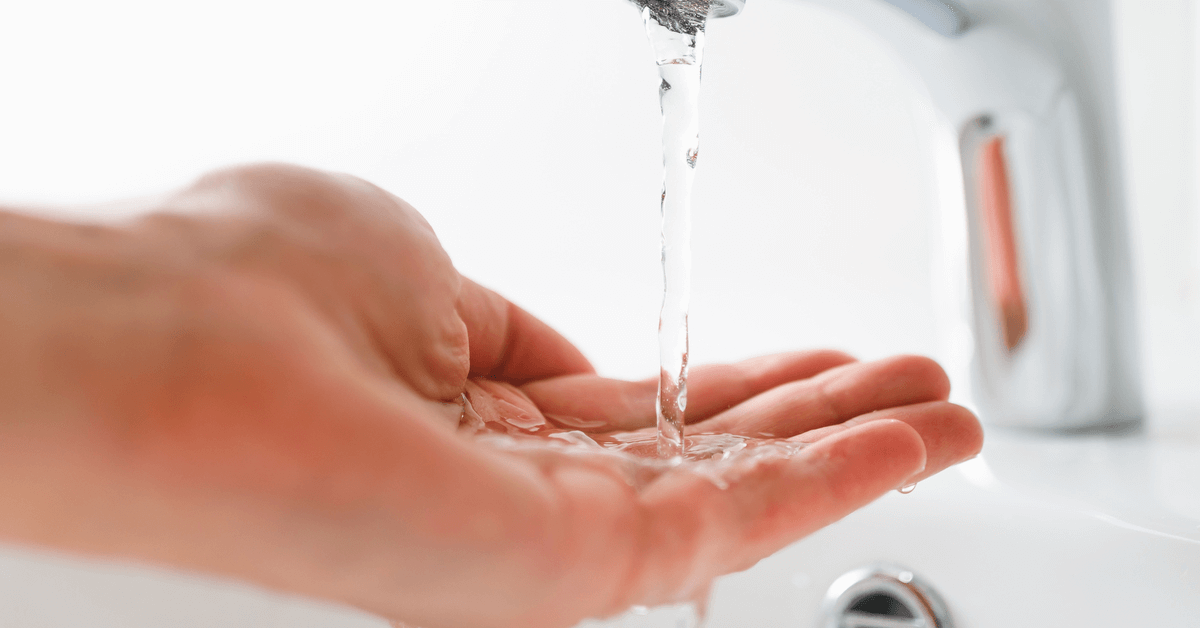Easy-to-Follow Approaches for Dealing with Low Water Pressure in Your Home
Easy-to-Follow Approaches for Dealing with Low Water Pressure in Your Home
Blog Article
Each person may have their unique concepts when it comes to 9 Reasons for Low Water Pressure in Your House.

Low tide stress in your home can be a discouraging trouble, influencing everything from showering to washing dishes. If you're experiencing weak water circulation, there are numerous feasible reasons and services to explore. In this guide, we'll talk about usual factors for low tide stress and functional steps to address the issue properly.
Intro to Low Water Pressure
Low tide stress occurs when the flow of water from your taps, showers, and various other components is weaker than typical. This can make daily jobs a lot more tough and much less efficient. Comprehending the sources of low tide stress is important to discovering the best solution.
Typical Causes of Low Water Stress
Pipe Obstructions
Over time, pipelines can come to be clogged with mineral deposits, debris, or debris, limiting the circulation of water. This is an usual concern in older homes with galvanized steel pipes.
Deterioration
Corrosion within pipes can result in leaks and lowered water pressure. Corrosion build-up can restrict water circulation, particularly in maturing plumbing systems.
Faulty Stress Regulatory Authorities
Pressure regulators are responsible for preserving constant water pressure in your home. If they malfunction, it can cause low tide pressure or uneven flow throughout your house.
Community Water Supply Issues
In some cases, the problem exists outside your home. Metropolitan water system concerns, such as main line leakages or maintenance job, can momentarily reduce water stress in your location.
Exactly How to Diagnose Low Tide Stress
Examining Taps and Fixtures
Beginning by examining the water pressure at various taps and fixtures throughout your home. If the concern is separated to particular areas, it might indicate localized problems.
Checking Pipelines
Inspect noticeable pipelines for indications of leaks, deterioration, or clogs. Take notice of any unusual audios, such as banging or rattling pipes, which can indicate concerns within the plumbing system.
Consulting with a Plumber
If you're incapable to identify the cause of low tide stress, think about hiring a specialist plumber to perform a thorough evaluation. They can recognize underlying problems and advise proper remedies.
Do It Yourself Solutions to Deal With Low Tide Stress
Cleaning Aerators and Showerheads
Mineral deposits can accumulate in aerators and showerheads, lowering water flow. Remove and clean up these elements frequently to enhance water pressure.
Flushing Hot Water Heater
Debris buildup in the water heater can limit flow and reduce performance. Purging the container occasionally helps get rid of debris and preserve ideal performance.
Checking Stress Regulator
Make sure that the pressure regulator is operating appropriately. Readjusting or replacing the regulator can aid recover correct water pressure throughout your home.
Clearing Clogs in Pipes
For small blockages, try making use of a plumbing snake or chemical drain cleaner to clear blockages in pipelines. Be cautious when making use of chemicals and follow safety and security guidelines.
When to Call an Expert Plumber
If DIY initiatives stop working to settle the problem or if you suspect substantial plumbing troubles, it's ideal to look for help from a licensed plumber. They have the knowledge and tools to address complicated issues securely and properly.
Safety Nets to Preserve Water Pressure
Normal Maintenance
Schedule regular maintenance for your plumbing system to prevent issues such as rust, leaks, and obstructions. Resolving small problems early can help stay clear of even more substantial fixings in the future.
Mounting a Stress Booster
Think about installing a stress booster pump to boost water stress in areas with regularly low circulation. This can be specifically advantageous for multi-story homes or properties with high-demand components.
Tracking Water Use
Be mindful of water usage habits and stay clear of overtaxing the plumbing system. Basic modifications, such as shocking showers and laundry lots, can assist maintain ample water stress.
Verdict
Managing low tide stress can be irritating, yet determining the underlying reasons and executing appropriate solutions can bring back ideal circulation throughout your home. Whether it's cleaning aerators, checking pipelines, or talking to a plumber, taking aggressive steps can make sure a constant supply of water for your daily demands.
HOW TO FIX LOW WATER PRESSURE IN YOUR HOUSE
When your plumbing system functions properly, you likely never think about the water pressure coming from your faucets, shower heads, or other water fixtures. If you experience low water pressure in your house, though, it can quickly cause problems for cooking, cleaning, bathing, and laundry. Learning how to fix low water pressure in your house can help you avoid frustrating situations and worsening plumbing issues.
When investigating why your home has low water pressure, call the plumbing professionals at Hutchinson to inspect your system, identify the problem, and perform necessary repairs. Our highly-trained plumbing system experts utilize the best tools and techniques available to resolve issues with your home’s plumbing system. Call today to schedule a service with our experts and resolve the low water pressure in your home.
Common Causes of Low Water Pressure
While learning about how to fix low water pressure in your house, it’s essential to understand the various causes of this issue. From plumbing system failures to issues with your water fixtures, there are many reasons for low water pressure in a home. The most common causes of low water pressure include:
Pipe corrosion: If you live in an old house, your pipes could be much older than you realize. Over time, most pipes corrode, especially those made from galvanized steel. Corrosion creates small holes in your pipes that allow water to leak as it travels to your fixtures, leading to low water pressure. Hard water: Hard water forms when water retains a certain concentration of mineral and sediment buildup. Hard water can exacerbate corrosion and reduce water pressure. Hard water remains one of the main culprits of clogged pipes. Clogged pipes: When a pipe blockage clogs your system, it restricts water flow. That’s why clogged pipes are a leading cause of low water pressure. Faulty fixtures: Components within individual water fixtures can experience isolated clogging and rusting that cause low water pressure. If you notice only low shower pressure or limited faucet flow, inspect your system for faulty fixtures displaying rusting, clogging, and other damage. Water line leaks: Your water supply usually comes from a community source connected to your home through a water line. Any leaking in this water line will reduce water pressure before it enters your home. If you share a water line with neighbors, they might also notice low water pressure due to this problem. Broken pressure regulator: The pressure regulator ensures the water flowing throughout your home remains at a psi of about 50. Damage or breakdown of this crucial component will reduce water pressure throughout your property. Closed valve: The water valve supplying your home must be fully open to enable proper water pressure. A partially closed valve will yield low water pressure and cause issues. 5 Ways to Fix Low Water Pressure
Check for Leaks
Depending on their severity, leaks are usually easy to identify as the cause of your low water pressure. Whether your basement floods overnight or you notice mold growth on surfaces near your pipes, leaks usually present noticeable symptoms. In most cases, you’ll need to call professionals to replace sections of damaged piping or seal water line leaks.
Clear Clogged Pipes and Drains
Clogs can occur in any part of your system at any time. In most cases, it’s difficult to resolve clogged pipes and drains without professional equipment and experience.
Hutchinson experts can perform a comprehensive plumbing system inspection to identify the clog’s source and remove obstructions from your pipes. With the help of advanced equipment, we can restore your home’s normal water flow and pressure.
Replace the Pressure Regulator
After identifying a faulty pressure regulator as the cause of your low water pressure, there’s nothing to do but replace the mechanism. Homeowners should never conduct their own replacement.
Attempting to replace a crucial component like your pressure regulator that attaches to your overall plumbing framework could cause unnecessary damage and worsen the situation. Instead, rely on professionals to replace your pressure regulator properly.
Repair or Replace Broken Faucets and Fixtures
If you notice water pressure issues in an individual faucet or fixture, you can solve the problem quickly. Depending on the type and location of the fixture, you can likely replace it yourself.
For homes with custom fixtures, you might need to special order new parts. In these cases, opting for professional replacements helps you avoid any mishaps that could leave your water feature dysfunctional for longer.
Install a Pressure Booster
Water pressure problems impacting your neighborhood or community at large might require more overarching solutions. If your neighbors experience low water pressure as well, you might need to integrate a pressure booster into your water supply line.
Pressure boosters upgrade the water pressure starting at the source. These mechanisms can provide water pressure benefits to any homes on the same supply line. Call Hutchinson today to install a pressure booster on your water supply line.
Call Hutchinson to Fix All Your Plumbing Issues
Low water pressure is just one of many plumbing problems that reduce home comfort and cause system issues. The top-rated professionals at Hutchinson offer comprehensive plumbing services, including system inspections, maintenance, and repairs.
https://www.hutchbiz.com/blog/2024/01/15/how-to-fix-low-water-pressure-in-house/

As a serious person who reads on Low Water Pressure in the House?, I imagined sharing that section was necessary. Appreciated our piece of writing? Please share it. Help other people locate it. Thank you for going through it.
More Details Report this page